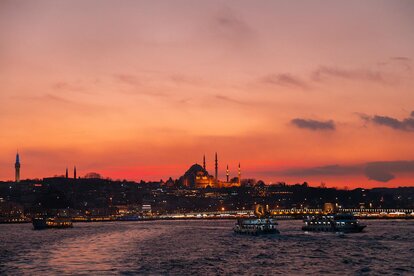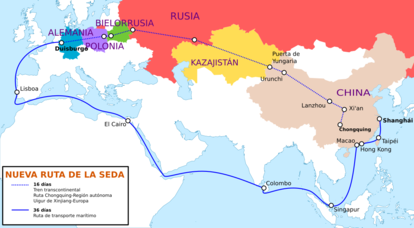Economy
Investing in the Mediterranean. Europe and Africa hand to hand

If there is one certainty since 2020, it is that the global economic situation is changing and unstable, and this makes it difficult to project the investment climate. In recent years, we have seen promising projects hit by a global pandemic. On the other hand, as is usually the case, business opportunities have also arisen. In this context, what is the future of investment? The global market for goods and services has evolved rapidly. Consumer trends have changed, prices have shifted and some countries have even emerged stronger from the health crisis. In this article, we have prepared a study on the investment climate from 2022 in the Mediterranean and North Africa region, so that individuals and companies can diversify their assets, products and investments and obtain higher returns.
In the aftermath of the COVID-19 pandemic, many countries in the Mediterranean and North Africa have not stopped trying to revitalise their economies and institutions to become more competitive, more digital and more resilient. So far, the Mediterranean is experiencing a strong but uneven economic recovery. To protect itself from the risk of losing this momentum and to become more autonomous from investor countries such as China and the United States, Europe and Africa need to develop more responsible and sustainable models of capitalism to further strengthen their economies, their businesses and their regions. Moreover, the region must ensure that these models are truly competitive, that they benefit all stakeholders and attract domestic and foreign investment.

Bósforo
© PixabaySectors with investment opportunities
Despite the EU's efforts, today the region is not perceived as a single market in the eyes of foreign investors, for whom each national market requires specialised knowledge. To make its market more readable for foreign investors and thus enhance its ability to attract capital, Europe must work on standardisation in its various member states, whether in banking, taxation or other areas. It must also be borne in mind that it is being developed in a context of limited resources and major geopolitical struggles.
The Mediterranean plays a very important role in the EU's common market. It has an important tourism and service sector industry. The Mediterranean region, made up of 24 countries, accounts for 20% of the world's hotel accommodation capacity and offers more than 10,000 destinations and some 100,000 hotels.
Four Mediterranean countries are among the world's top tourist destinations: France, Spain, Italy and Turkey. In addition, Morocco, Tunisia and Egypt top the lists of the most visited countries on the African continent. The Mediterranean is the world's main tourist area and accounts for about 30 % of world tourism revenues (World Tourism Organisation https://www.e-unwto.org/). Mediterranean tourism is still an irregular and fragmented sector, which is precisely why it offers a strong potential for renewal towards a more sustainable, green and technological tourism.
We know that information technologies play a very important role in the growth of businesses in all sectors. It has been proven that citizens' access to information depends on the level of education, the quality of infrastructure, media coverage and the telecommunications systems offered by each country. Mediterranean countries with incipient digital development are therefore very attractive for foreign technological investment.
Spain and the Mediterranean: a strategic position
Since 2020, the export structures of the countries of the Mediterranean basin have been strengthened. One of the sectors that have exploded as a result of the restrictions of the pandemic has been the logistics sector, which is the enabler of all e-commerce that moves globally and, especially, from East to West.
In this sense, Spain is positioned as one of the main logistics platforms for international trade from both Asia and the Americas, which promotes a very favourable business climate for investors. According to the FDI (Foreign Direct Investment) confidence index of the consultancy firm Kearney, France, Italy and Spain are among the top 10 countries preferred by investors globally. As every year, investors favour the most developed and stable markets. However, in the southern Mediterranean there are developing markets with thriving industrial sectors of great investment interest. Morocco, Turkey and Tunisia are positioned as leaders in automotive and information and communication technologies. In addition, Greece, Cyprus and Egypt continue to grow as suppliers of raw materials (energy, chemicals and construction).

China's New Silk Road. Current maritime and rail transport routes. The globalisation project by J. Morillo 11 January 2021
© Creative CommonsThe Global Gateway: The EU's big investment in Africa
The EU announced in 2021 that it would invest €150 billion in the African continent over the next six years. This makes up 50% of the funds mobilised under its new Global Gateway investment strategy. Global Gateway aims to mobilise $300 billion between 2021 and 2027. This package will be deployed thanks to contributions from European institutions and member countries, but also private funding. It aims to support African industry and business in their green and digital transformation. In the near future, this exceptional and historic investment will translate into more prosperous and stable economies for these countries, their Mediterranean neighbours and also for investors.
